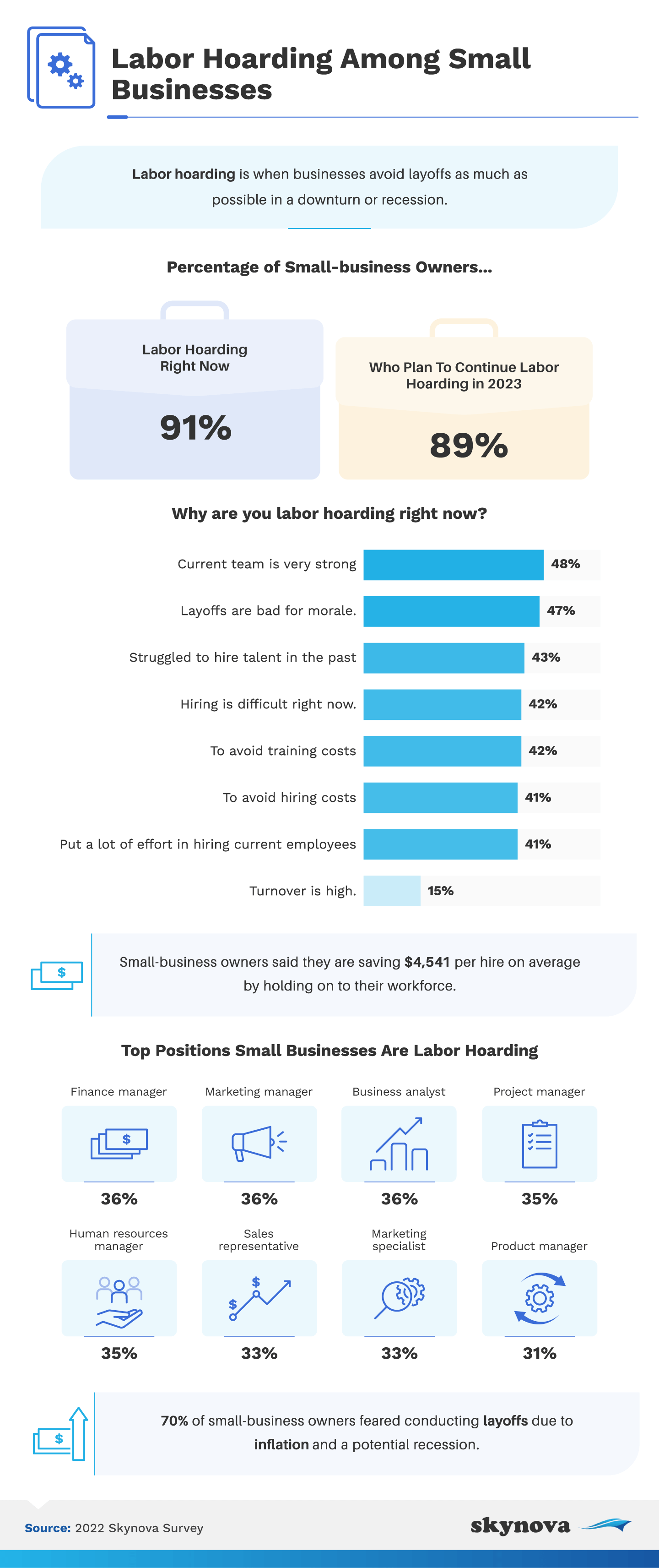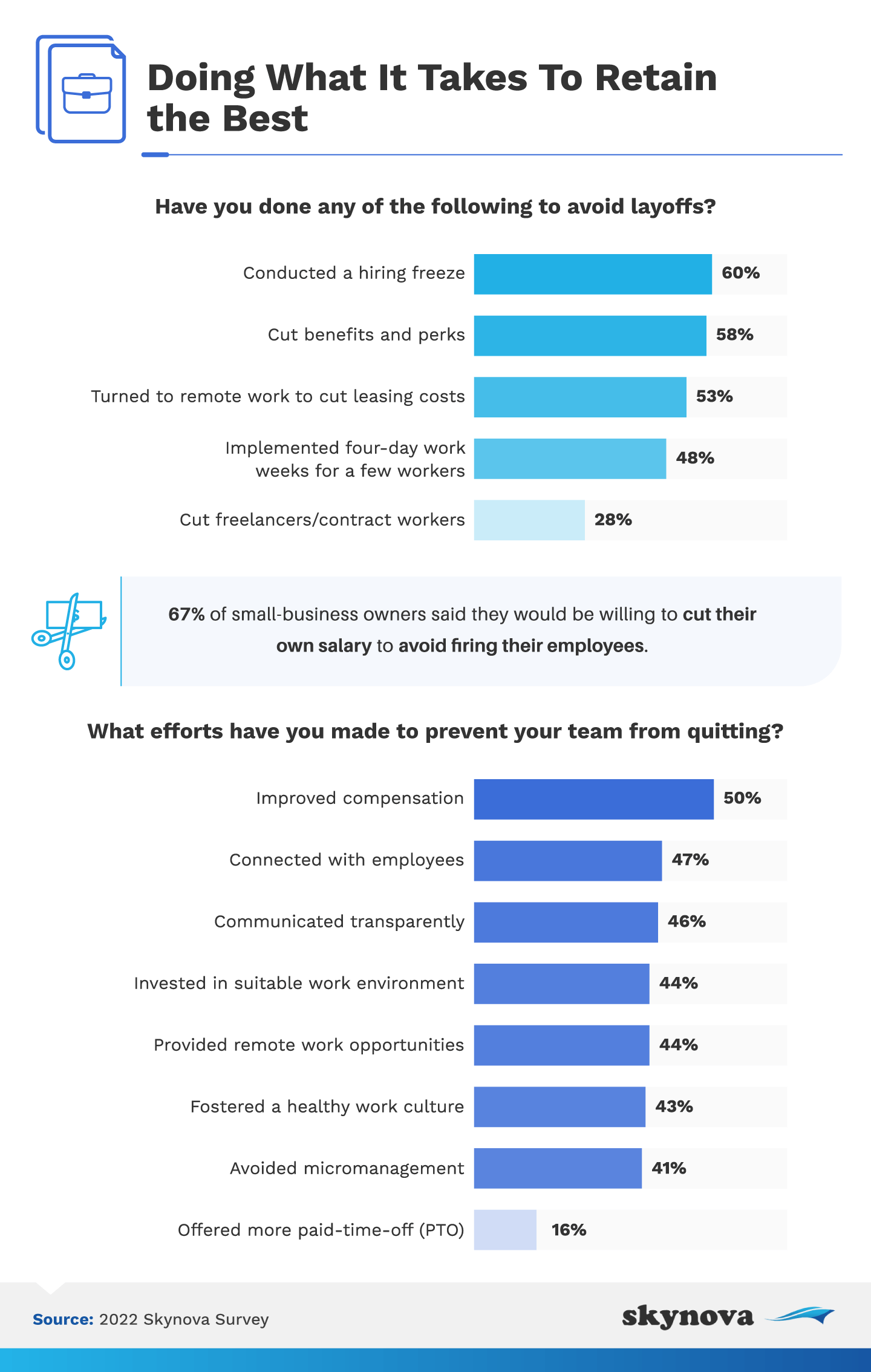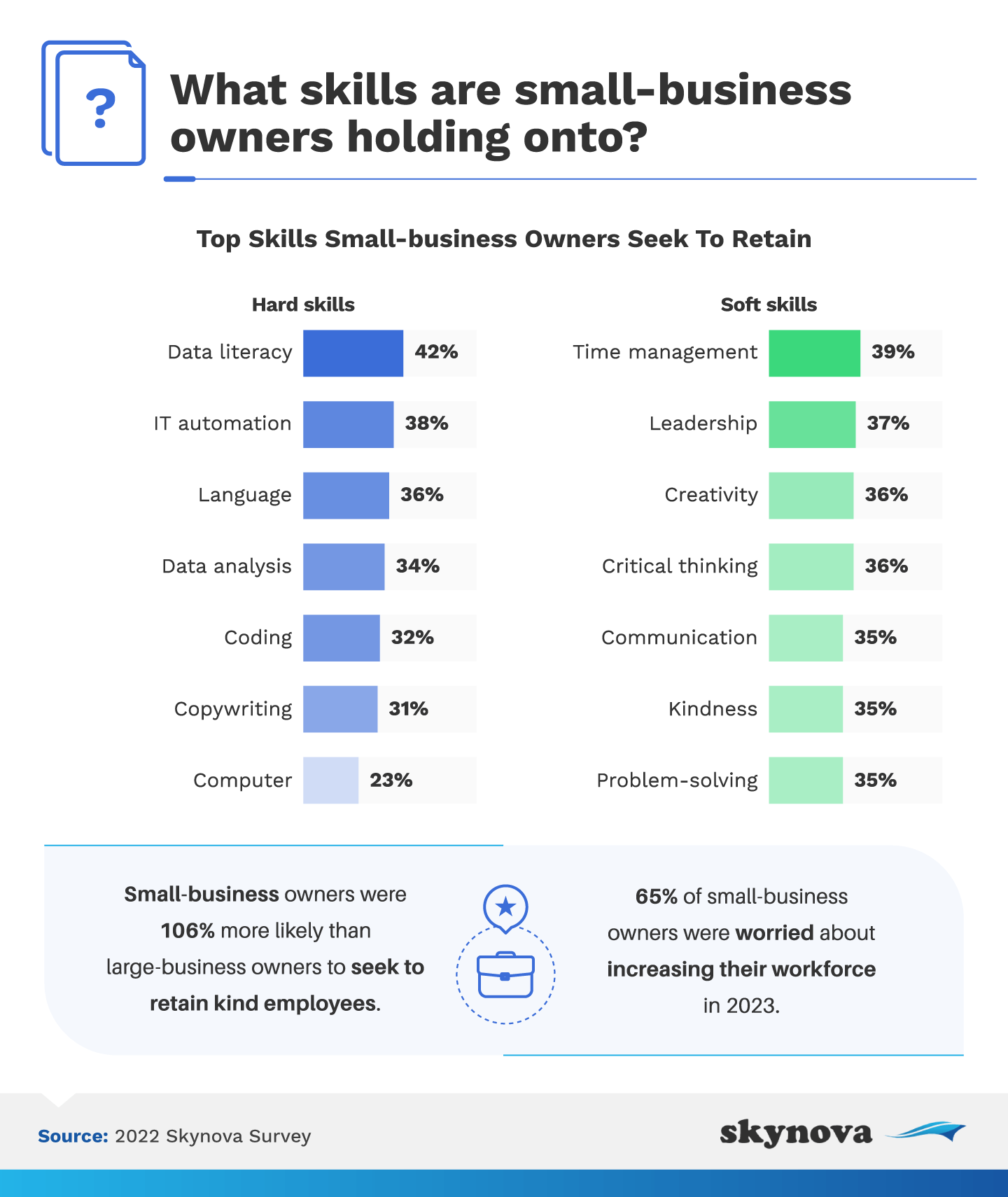
|
With high inflation and a looming recession, labor hoarding — avoiding layoffs at all costs during a downturn or recession — has become prevalent. How are small businesses preventing quitting, and have their efforts been successful?
We surveyed 1,010 business owners about why they're labor hoarding, their retention strategies, and which skills they value most among their workers. Let's take a look at this trend and how it might affect businesses going into 2023.
There are many reasons why a business would want to avoid layoffs. First, let's see why small businesses are labor hoarding and which positions are most likely to stick around.

Most small businesses seemed interested in keeping the status quo within their company. An astounding 91% of small-business owners said they're labor hoarding, and you can expect this trend to continue; 89% were planning to keep it up in 2023. Large-business owners were even more likely to do it, as 99% said they were labor hoarding to some capacity.
Small businesses shared several reasons for wanting to keep their current employees, but the most popular was confidence in their current team's strength (48%). Almost the same number stated that layoffs were bad for morale; it makes sense that they'd want to keep workers' spirits up during these trying times. Seven in 10 small businesses also cited inflation and a potential recession as reasons to avoid laying off workers. If forced to let employees go, 74% said they would rehire them after the economy recovered.
Regarding finances, every new hire comes with hiring expenses that can add up quickly. So, naturally, some small-business owners (over 40%) are labor hoarding to decrease their hiring and training costs. And it's been working — according to self-reported expenditures, small-business owners saved an average of $4,541 per hire by holding on to their current employees.
The least common reason for labor hoarding was high turnover among employees (15%). That's good news, as it could be an indication that most small-business employees are satisfied with their jobs. Small-business owners also shared that they value their finance managers, marketing managers, and business analysts the most (36%). Meanwhile, product managers were valued slightly less at 31%.
What are small-business owners doing to keep their valued employees?

Small-business owners have tried a handful of different methods to avoid laying off employees. Over half (60%) have conducted a hiring freeze — the most common option among our respondents. Others have reduced employee benefits (58%) or switched to remote work (53%) to cut office costs. Slightly fewer (48%) took that even further and reduced the work week to four days for some of their workers.
The least popular method used by small businesses to ensure enough funding to pay their employees was to let go of their freelance and contract workers (28%). But large businesses were far less likely to take that measure. In fact, they were the ones most likely to cut their own salaries to avoid laying anyone off (82%) compared to small businesses (67%) and medium-sized ones (41%).
But despite the best efforts to avoid layoffs, quitting is also something many business owners want to avoid. To keep employees, having an effective retention strategy is crucial. This might include increasing employee compensation, the top method used by half of the businesses we surveyed. Another option is offering the perk of working from home, which 44% of our respondents have allowed. But providing more paid time off was the least popular option, as only 16% of business owners used PTO to motivate their teams.
The last part of our study lists the hard and soft skills most important to businesses. Which ones do business owners need most, in order to maintain a great team?

Tech skills have become more in-demand as the digital world continues to grow. Small-business employers were most interested in keeping employees with data literacy skills (42%) and IT automation (38%). But hard skills weren't the only characteristics employers considered; several soft skills were highly valued as well.
The most desired soft skill to retain was time management, according to 39% of small-business owners. Leadership, creativity, and critical thinking were other soft skills that more than 36% didn't want to lose. Kindness was another highly valued quality (35%), and one which small businesses were 106% more likely than large ones to make efforts to retain. Being a pleasure to work with can go a long way in the small-business world!
Businesses of all sizes are dealing with inflation and preparing for a potential recession. We expect labor hoarding to continue into 2023, with companies doing what they can to keep their employees. If you're an employee, it's a smart move to learn a new hard skill that your employer will value, especially if it has to do with technology. Improving soft skills, like communication or problem-solving, might also help.
What you can do to keep employees happy will vary depending on how you do business, but it's advisable to try a few of the strategies others have used successfully.
Skynova provides an invoice template and other online software for businesses. We also help with daily work and shipment tasks, including timesheets, purchase orders, packing slips, and business proposals.
For this campaign, we surveyed 1,010 business owners. Among them, 62% were men, and 38% were women. The company size breakdown is as follows: 21% large, 22% medium, and 57% small businesses.
Know someone who would be interested in current and future employment trends? You're welcome to share this study as long as you provide a link to this page. Sharing this information is permissible for noncommercial purposes only.